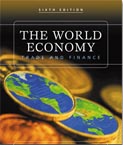Philippines banks on overseas workers to ride out crisis
 Manila - Before flying back to California after a short vacation in Manila, Raymond Gornis visited the site of a condominium project in the bustling Araneta Center in Quezon City, where he plans to buy a unit.
Manila - Before flying back to California after a short vacation in Manila, Raymond Gornis visited the site of a condominium project in the bustling Araneta Center in Quezon City, where he plans to buy a unit.
Gornis, 36, has been shuffling between two jobs as a school teacher and storekeeper in a video store in California for the past four years to save money to invest in properties and to start a small business in his eastern home province of Sorsogon.
"Life is hard now in the United States but we just have to work harder," he said. "We cannot lose heart."
The Philippine government and the business sector are hoping that dollar remittances of more than 8 million Filipinos living and working overseas, like Gornis, will cushion the impact of the global financial turmoil on the country's sluggish economy.
The effect of the crisis is already evident in the Philippine export sector, which grew at a slower year-on-year pace of 4.4 per cent in July and 6.5 per cent in August.
The weak export growth was expected since the US, which is feeling the brunt of the crisis, accounts for 15 per cent of the country's export market.
Ralph Recto, director general of the National Economic Development Authority, noted that for every 1-per-cent drop in the gross domestic product (GDP) of the US, the Philippines' GDP will fall by 0.6 per cent.
The Philippines mining sector, which was one of the few bright spots in the country's near-dormant economy, has failed to attract more investments as the financial crunch takes its toll on investors.
Mines and Geosciences Bureau chief Horacio Ramos conceded that the government's target to attract 10 billion dollars in mining investments by 2010 would not be achievable.
Ramos said the target could be achieved two years later in 2012.
Finance Secretary Margarito Teves admitted that the meltdown at Wall Street has adversely affected the flow of investments into the Philippines.
Government records showed that net foreign investment inflow dropped by 60 per cent to 960 million dollars in the first seven months of 2008 from 2.41 billion dollars recorded for the same period last year.
But the government and the business sector remain optimistic that consumer spending, largely fueled by overseas Filipinos' remittances, will continue to boost economic activities.
Real estate developers remain bullish about the prospects of growth by developing affordable housing and residential projects targeting the overseas workers.
In September, Philippine real estate developers held a trade expo in California, showcasing their latest development projects. A similar property show was held in Dubai in the same month targeting Filipino expatriates in the Middle East.
Vic Asuncion, director for global research services of property service firm CB Richard Ellis, noted that the current mortgages - fixed at between 8.5 per cent to 12 per cent for one to five years - continue to attract overseas workers.
"Overseas Filipino workers continue to avail of housing loans," he told Deutsche Presse-Agentur dpa. "Residential projects are encouraged by more affordable development loans and facilities."
Central Bank Governor Amando Tetangco expressed confidence that overseas remittances will prop up the value of the peso despite the outflow of investments.
The central bank predicted overseas remittances to increase by 10 per cent to 16 billion dollars in 2008, from 14.49 billion dollars recorded in 2007.
Central bank data showed that remittances for the first eight months of the year rose by 17.16 per cent to 10.36 billion dollars, higher than 9.33 billion dollars in the same period last year.
Although the growth in remittances in August slowed to 10.36 per cent, compared to 24.64 per cent in July, the total amount of 1.33 billion dollars was still substantial.
Labour Secretary Marianito Roque attempted to allay fears of retrenchment and reduced employment opportunities for Filipinos abroad.
Roque said among new prospects for Philippine labour export are the Canadian provinces of Alberta, British Columbia and Manitoba; as well as Southern Australia, Norway, and New Zealand.
"We don't expect that much reduction in the demand for the services of our overseas workers," he said. "The employment markets remains stable. The jobs are still there."
Gornis said that even if some Filipinos lose their jobs amid the crisis, they would probably not return to the Philippines and instead continue to look for jobs in US.
"One thing about Filipinos abroad, we are ready to take on odd jobs to make both ends meet and to see to it that we send something back home," he said.
Esteban Conejos, foreign undersecretary for migrant affairs, said he expected remittances to increase as the crisis worsens because overseas Filipinos will do all they can to help their relatives in the Philippines cope with the hard times.
"Based on past experience, in times of crisis, remittances from overseas Filipinos grow," he said. (dpa)